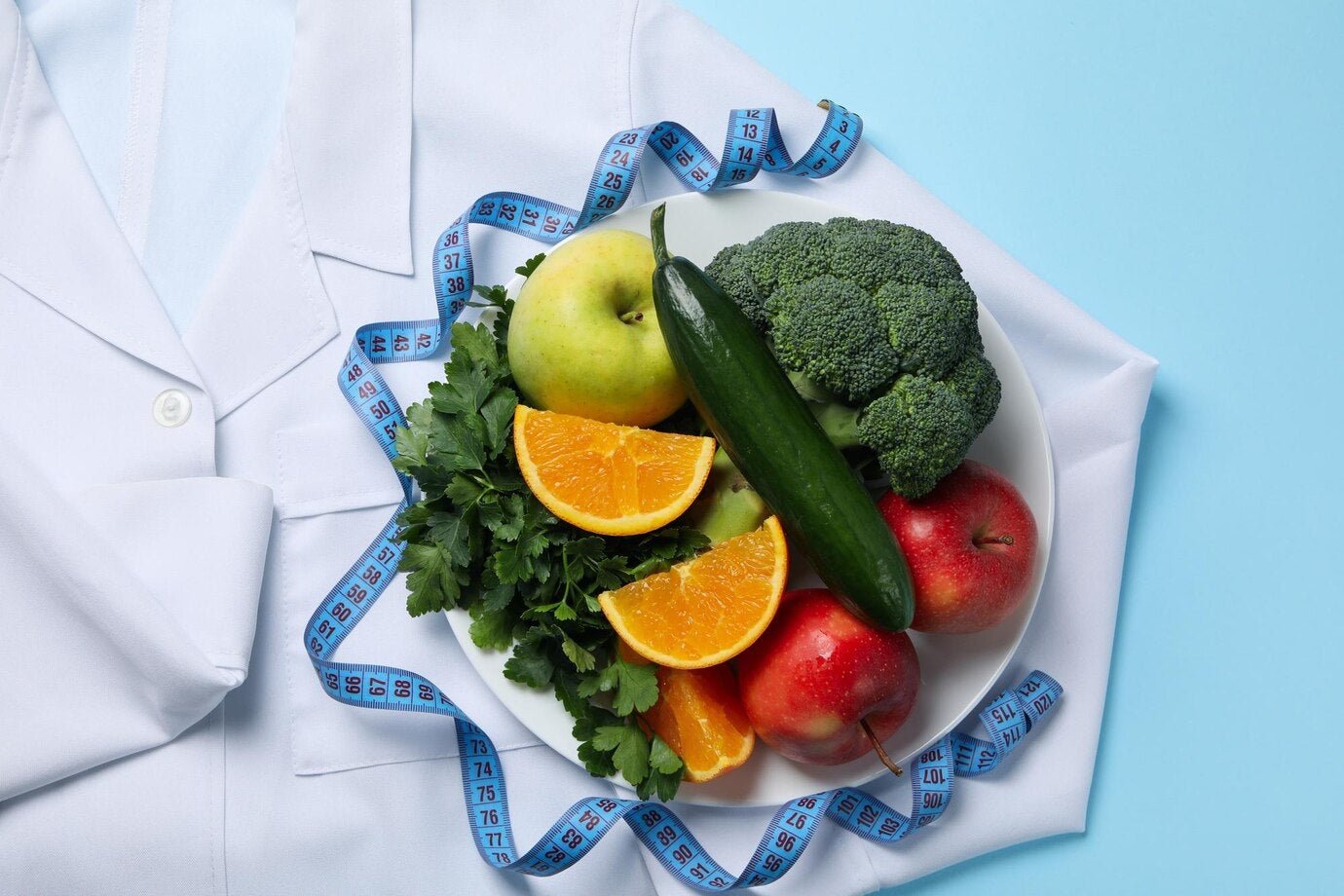The Connection Between Diet and Colorectal Cancer
March 25, 2024
The colon helps maintain hydration and conserve electrolytes by reabsorbing fluid and salts. It is also home to healthy bacteria, called probiotics, that have a symbiotic relationship when intestinal flora use fiber, also called prebiotics, as fuel to produce the short chained fatty acids that support colon health. The intestinal microbiota plays an important role in our immune system and may serve as protection against pathogens. Extensive research regarding the symbiotic relationship with our microbiome and colorectal cancer risk is underway.
Eating a diet rich in fiber and phytonutrients is crucial for maintaining colon health. Vegetables, fruits, and whole grains contain essential vitamins, minerals, and fiber that can help protect against colorectal cancer. These plant-based foods support the healthy bacteria in your colon, producing short-chain fatty acids vital for your digestive health. Including a variety of colorful fruits and vegetables in your diet not only enhances its nutritional value but also contributes to a robust immune system, offering protection against harmful pathogens.
What Nutrients are Good for Colon Cancer Prevention?
Several nutrients have been identified as particularly beneficial in the fight against colorectal cancer:
- Fiber: Acts as fuel for beneficial gut bacteria and helps keep the digestive system running smoothly
- Vitamin D and Calcium: Sufficient levels of vitamin D and a diet high in calcium-rich foods, such as low-fat dairy and leafy greens, have been associated with lower risk of developing colorectal cancer.
- Magnesium: Found in nuts, seeds, beans, and whole grains, magnesium may also play a role in reducing cancer risk, although more research is needed.
3 Foods to Avoid for Colorectal Cancer Prevention
Dietary choices can significantly impact the risk of developing colorectal cancer. Here are some foods and practices to avoid:
- Red and Processed Meats: Current guidelines advise reducing consumption of red meat to between 12-18 ounces weekly and recommend steering clear of processed meats. These foods are linked to an increased risk of colorectal cancer due to the formation of carcinogenic compounds in the gut. Studies show that the risk of developing colorectal cancer increases by an estimated 12% for every 100 gram (3.5 oz) of red meat consumed daily, and by 16% for every 50 gram (1.75 oz) of processed meat.
- High-Temperature Cooking: Cooking meats at high temperatures, such as grilling or frying, can produce heterocyclic amines and polycyclic aromatic hydrocarbons, which have been associated with an increased risk of cancer in animal studies.
- Alcohol: Reducing alcohol intake is advised, as there is a clear correlation between alcohol consumption and an increased risk of colorectal cancer.
Genetic Factors in Colorectal Cancer
While genetics play a significant role in colorectal cancer risk, there are lifestyle factors within our control that can mitigate this risk. Since we cannot modify these genetic predispositions, focusing on controllable factors such as diet and exercise, can actively reduce the risk of colorectal cancer. These choices not only enhance efforts to prevent colorectal cancer but also foster longer-term well-being.
Lifestyle Changes to Reduce Colorectal Cancer Risk
While diet plays a significant role in colorectal cancer prevention, it’s important to combine healthy eating with other lifestyle modifications:
- Maintain a Healthy Weight: Being overweight increases your risk of colorectal cancer.
- Stay Physically Active: Regular exercise is linked to a reduced risk of colon cancer. Aim for at least 150 minutes of moderate-intensity or 75 minutes of high-intensity exercise each week. Exercise strengthens the digestive track and helps prevent constipation.
- Limit Alcohol and Avoid Smoking: These habits are linked to an increased risk of colorectal cancer.
Colorectal Screening in Fort Lauderdale
Discover advanced screening solutions tailored to your needs at Holy Cross Health in Fort Lauderdale. By booking your colon cancer screening appointment, you’re proactively investing in your health and well-being.
Ready to prioritize your colorectal health? Our GI Specialists are dedicated to supporting you every step of the way.
